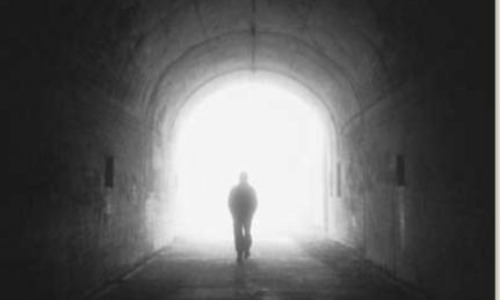Going to the wake of my friend‘s mom, I found myself engaged in a strange line of thinking. Memories of past deaths came back to me. Michael. Sean. Peter. All the grandparents. Not in a bad way, either.
Mood music:
[spotify:track:67Cg1LnmtmJDOZEzCvP6mk]
In a bizarre game of mental math, I started thinking about how long it took me to bounce back from each death. It’s a stupid game to play, because there’s no science or arithmetic that applies. The death of a grandparent is part of the natural order of things. The death of a sibling or close friend, not so much. Unless, perhaps, everyone is well into their senior years. Even then, you can’t put a measuring stick on grief.
But I tried doing it anyway.
With Michael and Sean, I’m not sure I ever really recovered. To this day, I’m cleaning up from the long cycles of depression and addiction that followed me through the years.
Along the way, good things happened to fill in the black holes. I married the love of my life. We had two beautiful children. My career hummed along nicely for the most part.
In a strange way, Peter’s death, terrible and depressing as it was, marked the beginning of a long, hard path to recovery. It was my behavior in the months after his death that made me realize something was seriously wrong with me. It’s almost as if Peter’s spirit pushed me into dealing with things.
Peter always was a pushy motherfucker.
As you might expect, I failed to emerge with a general timeline of the grieving process. It turns out we’re not supposed to know about such things. That would be cheating.
I do know that IT GETS BETTER.
Understanding that as I do, I have the following advice for those trying to get through the grieving process:
–First, go read the past year of entries in “Penny Writes… Penny Remembers.” If you can’t learn how to live in the face of horrible loss from the writings of Penny Morang Richards, I got nothing else for you.
–Take a moment to appreciate what’s STILL around you. Your spouse. Your kids. Your friends. If the death you just suffered should teach you anything, it’s that you never know how long the other loves of your life will be around. Don’t waste the time you have with them, and, for goodness sake:
–Don’t sit around looking at people you love and worrying yourself into an anxiety attack over the fact that God could take them from you at any moment. God holds all the cards, so it’s pointless to even think about it. Just be there for people, and let them be there for you.
–Take care of yourself. You can comfort yourself with all the drugs, alcohol, sex and food there is to have. But take it from me, giving in to addictions is nothing but slow suicide. You can’t move past grief and see the beauty of what’s left if you’re too busy trying to kill yourself. True, I learned a ton about the beauty of life from having been an addict, but that doesn’t mean I’d ever wish that experience on others. If there’s a better way to cope, do that instead.
–Embrace things that are bigger than you. Nothing has helped me get past grief more than doing service to others. It sounds like so much bullshit, but it’s not. When I’m helping out in the church food pantry or going to Overeater’s Anonymous meetings and guiding addicts who ask for my help, I’m always reminded that my own life could be much worse. Or, to put it another way, I’m reminded how my own life is so much better than I realize or deserve.
Like I said: This isn’t a science.
It’s just what I’ve learned from my own walk through the valley of darkness.


I also lost a sibling, I was 24. Lost her suddenly. We were very close, she was my best friend. I can udnerstand your writings about death and stages that you go through and how all the memories can come back when you go to other funerals. Can relate. Great post.